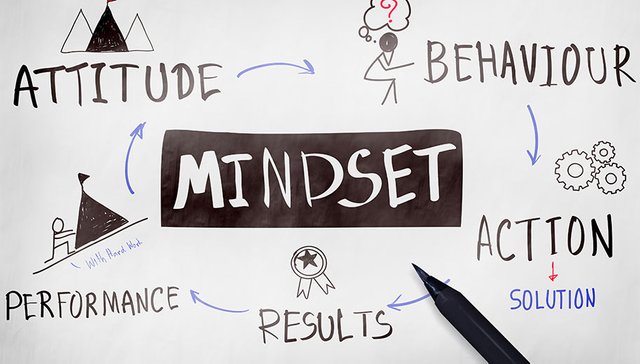The Influence of Attitude on Behavior
In psychology, attitude is an intangible psychological construct, an abstract and internal entity that characterizes an individual. Attitude is often called the attitude of the beholder. They are an acquired characteristic through unique experiences and are complex. The meaning of attitude may mean different things to different people. For example, to some, "feeling good" is synonymous with "being happy".

According to the Myers-Brigg Type Indicator (MBTI), there are four basic attitudes, namely, positive attitude, negative attitude, dependent attitude, and objective attitude. The first three are positive in nature, while the last two, dependent and objective, indicate a lack of personal control or influence. The fourth attitude, which is the only one indicated by the MBTI, indicates a personal involvement or a state of sincerity or of dedication to a cause or belief. These attitudes all have to do with the cognitive components of personality.
Positive attitude develops out of a positive response to negative stimuli, such as anger or pain. The strength of this response to negative stimuli increases as a person gets older, but can be strengthened even more when exposed to new and more unpleasant situations. People who consistently express and demonstrate positive attitudes also have high levels of confidence. A person who possesses a positive attitude is said to possess a "cesable" attitude, which basically means that he is flexible and open to changes. This attitude facilitates creative thinking, which in turn is the most significant factor in the formation of operant conditioning.
In the realm of psychology, attitudes are considered to be a behavioral response to either one or many events or circumstances. They have to do with how a person perceives, remembers, or behaves after having been presented with a stimulus. Positive attitudes are considered to be the foundation of creativity, interpersonal functioning, and academic achievement.
Positive attitudes also facilitate social interaction and can reduce conflicts within a team. When people possess a positive attitude, they can easily put aside their own objections and concentrate on solving problems and establishing relationships. This is because they do not consider their previous behavior to be the only reality there is and therefore view each person as an important part of a team. As a result, group behavior is shaped by shared beliefs and thoughts, rather than conflict and irritation that usually arise from rigid attitudes. Such beliefs create cognitive dissonance, which causes people to question their original beliefs and behavior and can result in the consistent absence of those beliefs and behavior.
Attitude is affected by the cognitive component of personality. When a person comes with a positive attitude, his mind automatically believes that things will turn out in a positive way, and this affects his cognitive processing. This also influences the level of activity in his mind, making him act on what he previously perceived as being his inclinations. When his attitude is negativistic, his brain still processes information coming from his senses, but because it is pessimistic, it affects his behavior and beliefs negatively. Negativity has a stronger hold on his attitude than optimism because a person who is pessimistic tends to be more focused on his own failures than successes.
In order to control the effect of dissonance between attitude and behavior, we must learn to control our thoughts. Our attitude shapes our behavior because our cognitive thoughts are formed by the thoughts we entertain. Positive thoughts generate positive results. However, if we don't like what we get, we tend to form negative thoughts and thereby generate more dissonance between attitude and behavior.
We therefore need to be very careful about the beliefs we choose to entertain. We are often influenced by the people around us and by the media that we absorb. People with positive attitudes are rarely prone to engage in bickering, whereas negative attitude is often the reason for bad behaviors. Thus, it is important that we condition our attitude to fit in with our beliefs, and if we do not have such beliefs, we need to find ones that fit better.
Congratulations! Your post has been selected as a daily Steemit truffle! It is listed on rank 6 of all contributions awarded today. You can find the TOP DAILY TRUFFLE PICKS HERE.
I upvoted your contribution because to my mind your post is at least 21 SBD worth and should receive 68 votes. It's now up to the lovely Steemit community to make this come true.
I am
TrufflePig, an Artificial Intelligence Bot that helps minnows and content curators using Machine Learning. If you are curious how I select content, you can find an explanation here!Have a nice day and sincerely yours,

TrufflePig